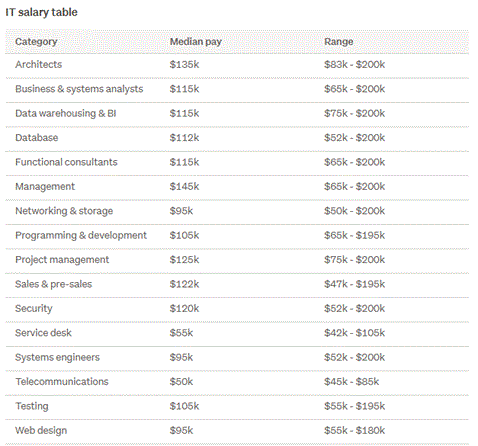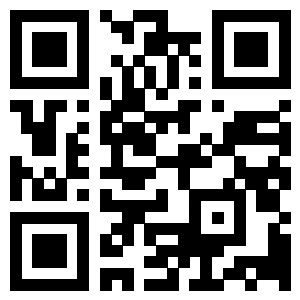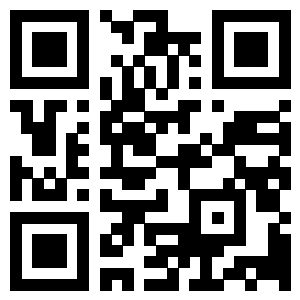2013年12月英语六级真题及答案(中秋庆祝篇)
2013年12月大学英语六级考试真题
Part I Writing (30 minutes)
(请于正式开考后半小时内完成该部分,之后将进行听力考试)
Directions: For this part, you are allowed 30minutes to write an essay about the impact of the information explosion byreferring to the saying “A wealth of information creates a poverty ofattention.” You can give examples to illustrate your point and then explainwhat you can do to avoid being distracted by irrelevant information. You shouldwrite at least 150 words but no more than 200 words.
Part II Listening Comprehension (30 minutes)
2013年12月英语六级听力真题音频点击收听
Section A
Directions: In this section, you will hear 8short conversations and 2 long conversations. At the end of each conversation,one or more questions will be asked about what was said. Both the conversationand the questions will be spoken only once. After each question there will be apause. During the pause, you must read the four choices marked A), B), C) andD), and decide which is the best answer. Then mark the corresponding letter onAnswer Sheet 1 with a single line through the centre.
1. A) Labor problems.
B) Weather conditions.
C) An error in the order.
D) Misplacing of goods.
2. A) What the woman says makes a lot ofsense.
B) The rich are opposed to socialwelfare.
C) He is sympathetic with poor people.
D) He agrees with Mr. Johnson’s views.
3. A) He will be practicing soccer.
B) He has work to finish in time.
C) He will be attending a meeting.
D) He has a tough problem to solve.
4. A) Mary should get rid of her pet as soonas possible.
B) Mary will not be able to keep a dog in thebuilding.
C)Mary is not happy with the ban on petanimals.
D)Mary might as well send her dog to herrelative.
5.A) The twins’ voices are quite different.
B) Lisa and Gale are not very much alike.
C) He does not believe they are twin sisters.
D) The woman seems a bit hard of hearing.
6.A) The serious economic crisis in Britain.
B) A package deal to be signed in November.
C) A message from their business associates.
D) Their ability to deal with financialproblems.
7.A) It is impossible to remove the staincompletely.
B) The man will be charged extra for theservice.
C) The man has to go to the main cleaningfacility.
D) Cleaning the pants will take longer thanusual.
8.A) European markets.
B) A protest rally.
C) Luxury goods.
D) Imported products.
Questions 9 to 12 are based on theconversation you have just heard.
9.A) He made a business trip.
B) He had a quarrel with Marsha.
C) He talked to her on the phone.
D) He resolved a budget problem.
10.A) She may have to be fired for poorperformance.
B) She has developed some serious mentalproblem.
C) She is in charge of the firm’s budgetplanning.
D) She supervises a number of importantprojects.
11.A) She failed to arrive at the airport ontime.
B) David promised to go on the trip in herplace.
C) Something unexpected happened at her home.
D) She was not feeling herself on that day.
12.A) He frequently gets things mixed up.
B) He is always finding fault with Marsha.
C) He has been trying hard to cover forMarsha.
D) He often fails to follow through on hisprojects.
Questions 13 to 15 are based on theconversation you have just heard.
13.A) They are better sheltered from all theoutside temptations.
B) They are usually more motivated to competewith their peers.
C) They have more opportunities to developtheir leadership skills.
D) They make an active part in moreextracurricular activities.
14.A) Its chief positions are held by women.
B) Its teaching staff consists of women only.
C) Its students aim at managerial posts.
D) Its students are role models of women.
15.A) It is under adequate control.
B) It is traditional but colourful.
C) They are more or less isolated from theoutside world.
D) They have ample opportunities to meet theopposite sex.
Section B
Directions: In this section, you will hear 3short passages. At the end of each passage, you will hear some questions. Boththe passage and the questions will be spoken only once. After you hear aquestion, you must choose the best answer from the four choices marked A), B),C) and D). Then mark the corresponding letter on Answer Sheet 1with a singleline through the centre.
Passage One
Questions 16 to 19 are based on the passageyou have just heard.
16.A) By invading the personal space oflisteners.
B) By making gestures at strategic points.
C) By speaking in a deep, loud voice.
D) By speaking with the local accent.
17.A) To promote sportsmanship among businessowners.
B) To encourage people to support localsports groups.
C) To raise money for a forthcoming localsports event.
D) To show his family’s contribution to thecommunity.
18.A) They are known to be the style of thesports world.
B) They would certainly appeal to hisaudience.
C) They represent the latest fashion in thebusiness circles.
D) They are believed to communicate power andinfluence.
19.A) To cover up his own nervousness.
B) To create a warm personal atmosphere.
C) To enhance the effect of background music.
D) To allow the audience to better enjoy hisslides.
PassageTwo
Questions 20 to 22 are based on the passageyou have just heard.
20.A) She was the first educated slave ofJohn Whitley’s.
B) She was the greatest female poet inColonial America.
C) She was born about the time of the War ofIndependence.
D) She was the first African-American slaveto publish a book.
21.A) Revise in a number of times.
B) Obtain consent from her owner.
C) Go through a scholarly examination.
D) Turn to the colonial governor for help.
22.A) Literary works calling for theabolition of slavery.
B) Religious scripts popular among slaves inAmerica.
C) A rich stock of manuscripts left byhistorical figures.
D) Lots of lost works written by African-Americanwomen.
PassageThree
Questions 23 to 25 are based on the passageyou have just heard.
23.A) It is a trait of generouscharacter.
B) It is a reflection of self-esteem.
C) It is an indicator of high intelligence.
D) It is a sign of happiness and confidence.
24.A) It was self-defeating.
B) It was aggressive.
C) It was the essence of comedy.
D) It was something admirable.
25.A) It is a double-edged sword.
B) It is a feature of a given culture.
C) It is a unique gift of human beings.
D) It is a result of both nature and nurture.
Section C
Directions: In this section, you will hear apassage three times. When the passage is read for the first time, you shouldlisten carefully for its general idea. When the passage is read for the secondtime, you are required to fill in the blanks with the exact words you have justheard. Finally, when the passage is read for the third time, you should checkwhat you have written.
It is important that we be mindful of theearth, the planet out of which we are born and by which we are nourished,guided, healed—the planet, however, which we have (26)_______to a considerabledegree in these past two centuries of (27)_______ exploitation. Thisexploitation has reached such (28)_______ that presently it appears that some hundredsof thousands of species will be (29)_______ before the end of the century.
In our times, human shrewdness has masteredthe deep (30)_______ of the earth at a level far beyond the capacities ofearlier peoples. We can break the mountains apart; we can drain the rivers andflood the valleys. We can turn the most luxuriant forests into throwaway paperproducts. We can (31)_______ the great grass cover of the western plains andpour (32)_______ chemicals into the soil until the soil is dead and blows awayin the wind. We can pollute the air with acids, the rivers with sewage(污水), the seas with oil. We can invent computers(33)_______ processing ten million calculations per second. And why?To increasethe volume and the speed with which we move natural resources through theconsumer economy to the junk pile or the waste heap. Our managerial skills aremeasured by the competence (34)_______ in accelerating this process. If inthese activities the physical features of the planet are damaged, if theenvironment is made inhospitable for (35)_______ living species, then so be it.We are, supposedly, creating a technological wonderworld.
Part III Reading Comprehension(40 minutes)
Section A
Directions: Inthis section, there is apassage with ten blanks. You are required to select one word for each blankfrom a list of choices given in a word bank following the passage. Read thepassage through carefully before making your choices. Each choice in the bankis identified by a letter. Please mark the corresponding letter for each itemon Answer Sheet 2with a single line through the centre. You may not use any ofthe words in the bank more than once.
Questions 36 to 45 are based on the followingpassage.
Quite often, educators tell families ofchildren who are learning English as a second language to speak only English,and not their native language, at home. Although these educators may havegood36 ,their advice to families ismisguided, and it 37 from misunderstandings about the process oflanguage acquisition. Educators may fear that children hearing two languageswill become 38 confused and thus theirlanguage development will be 39 ;thisconcern is not documented in the literature. Children are capable of learningmore than one language, whether 40 or sequentially(依次地). In fact, most children outside of theUnited States are expected to become bilingual or even, in many cases,multilingual. Globally, knowing more than one language is viewed as an 41 and even a necessity in many areas.
It is also of concern that the misguidedadvice that students should speak only English is given primarily to poorfamilies with limited educational opportunities, not to wealthier families whohave many educational advantages. Since children from poor families often are 42 as at-risk for academic failure, teachers believe that advising familiesto speak English only is appropriate. Teachers consider learning two languagesto be too 43 for children from poor families, believingthat the children are already burdened by their home situations.
If families do not know English or havelimited English skills themselves, how can they communicate in English?Advising non-English-speaking families to speak only English is 44 to telling them not to communicate with or interact with their children.Moreover, the 45message is that thefamily's native language is not important or valued.
注意:此部分试题请在答题卡2上作答。
A) asset
B) delayed
C) deviates
D) equivalent
E) identified
F) intentions
G) object
H) overwhelming I) permanently
J) prevalent
K) simultaneously
L) stems
M) successively
N) underlying
O) visualizing
Section B
Directions:In this section, you are going toread a passage with ten statements attached to it. Each statement containsinformation given in one of the paragraphs. Identify the paragraph from whichthe information is derived. You may choose a paragraph more than once. Eachparagraph is marked with a letter. Answer the questions by marking thecorresponding letter on Answer Sheet 2
The Uses of Difficulty
The brain likes a challenge—and putting a fewobstacles in its way may well boost its creativity.
A) JackWhite, the former frontman of the White Stripes and an influential figure amongfellow musicians, likes to make things difficult for himself. He uses cheapguitars that won’t stay in shape or in tune. When performing, he positions hisinstruments in a way that is deliberately inconvenient, so that switching fromguitar to organ mid-song involves a mad dash across the stage. Why? Becausehe’s on the run from what he describes as a disease that preys on every artist:“ease of use”. When making music gets too easy, says White, it becomes harderto make it sing.
B) It’san odd thought. Why would anyone make their work more difficult than it alreadyis? Yet we know that difficulty can pay unexpected dividends. In 1966, soonafter the Beatles had finished work on “Rubber Soul”, Paul McCartney lookedinto the possibility of going to America to record their next album. Theequipment in American studios was more advanced than anything in Britain, whichhad led the Beatles’ great rivals, the Rolling Stones, to make their latestalbum, “Aftermath”, in Los Angeles. McCartney found that EMI’s (百代唱片) contractual clauses made it prohibitivelyexpensive to follow suit, and the Beatles had to make do with the primitivetechnology of Abbey Road.
C) Luckyfor us. Over the next two years they made their most groundbreaking work,turning the recording studio into a magical instrument of its own. Preciselybecause they were working with old-fashioned machines, George Martin and histeam of engineers were forced to apply every ounce of their creativity to solvethe problems posed to them by Lennon and McCartney. Songs like “Tomorrow NeverKnows”, “Strawberry Fields Forever”, and “A Day in the Life” featuredrevolutionary sound effects that dazzled and mystified Martin’s Americancounterparts.
D) Sometimesit’s only when a difficulty is removed that we realise what it was doing forus. For more than two decades, starting in the 1960s, the poet Ted Hughes saton the judging panel of an annual poetry competition for Britishschoolchildren. During the 1980s he noticed an increasing number of long poemsamong the submissions, with some running to 70 or 80 pages. These poems wereverbally inventive and fluent, but also “strangely boring”. After makinginquiries Hughes discovered that they were being composed on computers, thenjust finding their way into British homes.
E) Youmight have thought any tool which enables a writer to get words on to the pagewould be an advantage. But there may be a cost to such facility. In aninterview with the Paris Review Hughes speculated that when a person puts pento paper, “you meet the terrible resistance of what happened your first year atit, when you couldn’t write at all”. As the brain attempts to force theunsteady hand to do its bidding, the tension between the two results in a morecompressed, psychologically denser expression. Remove that resistance and youare more likely to produce a 70-page ramble (不着边际的长篇大论).
F) Ourbrains respond better to difficulty than we imagine. In schools, teachers andpupils alike often assume that if a concept has been easy to learn, then thelesson has been successful. But numerous studies have now found that whenclassroom material is made harder to absorb, pupils retain more of it over thelong term, and understand it on a deeper level.
G) Asa poet, Ted Hughes had an acute sensitivity to the way in which constraints onself-expression, like the disciplines of metre and rhyme (韵律), spur creative thought. What applies topoets and musicians also applies to our daily lives. We tend to equate(等同于)happiness with freedom, but, as thepsychotherapist and writer Adam Phillips has observed, without obstacles to ourdesires it’sharder to know what we want, or where we’re heading. He tells the story of a patient,a first-time mother who complained that her young son was always clinging toher, wrapping himself around her legs wherever she went. She never had a momentto herself, she said, because her son was “always in the way”. When Phillipsasked her where she would go if he wasn’t in the way, she replied cheerfully,“Oh, I wouldn’t know where I was!”
H) Takeanother common obstacle: lack of money. People often assume that more money willmake them happier. But economists who study the relationship between money andhappiness have consistently found that, above a certain income, the two do notreliably correlate. Despite the ease with which the rich can acquire almostanything they desire, they are just as likely to be unhappy as the middleclasses. In this regard at least, F. Scott Fitzgerald was wrong.
I) Indeed,ease of acquisition is the problem. The novelist Edward St Aubyn has a narratorremark of the very rich that, “not having to consider affordability, theirdesires rambled on like unstoppable bores, relentless (持续不断的) and whimsical(反复无常的)at the same time.” When Boston College, aprivate research university, wanted a better feel for its potential donors, itasked the psychologist Robert Kenny to investigate the mindset of thesuper-rich. He surveyed 165 households, most of which had a net worth of $25mor more. He found that many of his subjects were confused by the infiniteoptions their money presented them with. They found it hard to know what towant, creating a kind of existential bafflement. One of them put it like this:“You know, Bob, you can just buy so much stuff, and when you get to the pointwhere you can just buy so much stuff, now what are you going to do?”
J) Theinternet makes information billionaires out of all of us, and the architects ofour online experiences are catching on to the need to make things creativelydifficult. Twitter’s huge success is rooted in the simple but profound insightthat in a medium with infinite space for self-expression, the most interestingthing we can do is restrict ourselves to 140 characters. The music service ThisIs My Jam helps people navigate the tens of millions of tracks now availableinstantly via Spotify and iTunes. Users pick their favourite song of the weekto share with others. They only get to choose one. The service was onlylaunched this year, but by the end of September 650,000 jams had been chosen.Its co-founder Matt Ogle explains its raison d’être (存在的理由) like this: “In an age of endless choice, wewere missing a way to say: ‘This. This is the one you should listen to’.”
K) Today’sworld offers more opportunity than ever to follow the advice of the WalkerBrothers and make it easy on ourselves. Compared with a hundred years ago, ourlives are less tightly bound by social norms and physical constraints.Technology has cut out much of life’s donkeywork, and we have more freedomsthan ever: we can wear what we like and communicate with hundreds of friends atonce at the click of a mouse. Obstacles are everywhere disappearing. Few of uswish to turn the clock back, but perhaps we need to remind ourselves how usefulthe right obstacles can be. Sometimes, the best route to fulfilment is the pathof more resistance.
注意:此部分试题请在答题卡2上作答。
46. The rigorous requirements placed on thewriting of poetry stimulate the poet’s creativity.
47. With creativity, even old-fashionedinstruments may produce spectacular sound effects.
48. More money does not necessarily bringgreater happiness.
49. It IS a false assumption that lessonsshould be made easier to learn.
50. Obstacles deliberately placed in thecreation of music contribute to its success.
51. Those who enjoy total freedom may notfind themselves happy.
52. Ted Hughes discovered many long poemssubmitted for poetry competition were composed oncomputers.
53. Maybe we need to bear in bear in mindthat the right obstacles help lead us to greater achievements.
54. An investigation found that many of thesuper-rich were baffled by the infinite choices theirmoney made available.
55. One free social networking website turnedout to successful because it limited each posting to one hundred and fortycharacters.
Section C
Directions:There are 2 passages in thissection. Each passage is followed by some questions or unfinished statements.For each of them there arefour choices marked A), B), C) and D). You shoulddecide on the best choice andmark the corresponding letter on Answer Sheet2with a single line through the centre.
Passage One
Questions 56 to 60 are based on the followingpassage.
There was a time not long ago when newscience Ph.D.s in the United States were expected to pursue a career path inacademia (学术界).Buttoday, most graduates end up working outside academia, not only in industry butalso in careers such as science policy, communications, and patent law. Partlythis is a result of how bleak the academic job market is, but there's also arising awareness of career options that Ph.D. scientists haven't trained fordirectly—but for which they have useful knowledge, skills, and experience.Still, there's a huge disconnect between the way we currently train scientistsand the actual employment opportunities available for them, and an urgent needfor dramatic improvements in training programs to help close the gap. Onecritical step that could help to drive change would be to require Ph.D.students and postdoctoral scientists to follow an individual development plan(IDP).
In 2002 the U.S. Federation of AmericanSocieties for Experimental Biology recommended that every postdoctoralresearcher put together an IDP m consultation with an adviser. Since then,several academic institutions have begun to require IDPsforpostdocs And inJune, the U.S. National Institutes of Health (NIH) Biomedical ResearchWorkforce Working Group recommended that the NIH require IDPs for theapproximately 32,000 postdoctoral researchers they support.Other fundingagencies, public and private, are moving in a similar direction.
IDPs have long been used by governmentagencies and the private sector to achieve specificgoals for the employee andthe organization. The aim is to ensure that employees have an explicittool tohelp them understand their own abilities and aspirations, determine careerpossibilities, and set (usually short-term) goals. In science, graduatestudents and new Ph.D. scientists can use an IDP to identify and navigate aneffective career path.
Afree Web application for this purpose,called myIDF.has become available this week. It's designed to guideearly-career scientists through a confidential, rigorous process ofintrospection (内省)tocreate a customized career plan. Guided by expert knowledge from a panel ofscience-focused career advisers, each trainee’s self-assessment is used to rank a set ofcareer trajectories(轨迹).After the user has identified a long-term career goal.myIDP walks her or himthrough the process of setting short-term goals directed toward accumulatingnew skills and experiences im?portant for that career choice.
Although surveys reveal the IDP process to beuseful, trainees report a need for additional resources to help them identify along-term career path and complete an IDP. Thus, myIDP will be most effectivewhen it’s embedded in larger career-development efforts. For example,universities could incorporate IDPs into their graduate curricula to helpstudents discuss, plan, prepare for, and achieve their long-term career goals.
注意:此部分试题请在答题卡2上作答。
56. What do we learn about new science Ph.D.sin the United States today?
A) They lack the skills and expertise neededfor their jobs.
B) They can choose from a wider range ofwell-paying jobs.
C) They often have to seek jobs outside theacademic circle.
D) They are regarded as the nation’s drivingforce of change.
57. What does the author say about America’sPh.D. training?
A) It should be improved to better suit thejob market.
B) It is closely linked to future careerrequirements.
C) It should be re-oriented to careersoutside academia.
D) It includes a great variety of practicalcourses.
58. What was recommended for Ph.D.s andpostdoctoral researchers?
A) They meet the urgent needs of thecorporate world.
B) A long-term career goal be set as early aspossible.
C) An IDP be made in consultation with anadviser.
D) They acquire an explicit tool to helpobtain jobs.
59. Government agencies and the privatesector often use IDPs to __________.
A) bring into full play the skills andexpertise of their postdoctoral researchers
B) help employees make the best use of theirabilities to achieve their career goals
C) place employees in the most appropriatepositions
D) hire the most suitable candidates to workfor them
60. What do we know about myIDP?
A) It is an effective tool of self-assessmentand introspection for better career plans.
B) It enables people to look into variouspossibilities and choose the career they love.
C) It promises a long-term career path.
D) It is part of the graduate curricula.
Passage Two
Questions 61 to 65 are based on the followingpassage.
Just over a decade into the 21st century,women’s progress can be celebrated across a range of fields. They hold thehighest political offices from Thailand to Brazil, Costa Rica to Australia. Awoman holds the top spot at the International Monetary Fund; another won theNobel Prize in economics. Self-made billionaires in Beijing, tech innovators inSilicon Valley, pioneering justices in Ghana—in these and countless otherareas, women are leaving their mark.
But hold the applause. In Saudi Arabia, womenaren’t allowed to drive. In Pakistan, 1,000women die in honor killings everyyear. In the developed world, women lag behind men in pay and political power.The poverty rate among women in the U.S. rose to 14.5% last year.
To measure the state of women’s progress.Newsweek ranked 165 countries, looking at five areas that affect women’s lives;treatment under the law, workforce participation, political power, and accessto education and health care. Analyzing data from the United Nations and theWorldEconomic Forum, among others, and consulting with experts and academics,we measured 28 factorsto come up with our rankings.
Countries with the highest scores tend to beclustered in the West, where gender discrimination is against the law, andequalrights are constitutionally enshrined(神圣化). But there were some surprises. Someotherwise high-ranking countries had relatively low scores for politicalrepresentation. Canadaranked third overall but 26th in power, behind countriessuch as Cuba and Burundi. Doesthissuggest that a woman in a nation’s top officetranslates to better lives for women in general? Not exactly.“Trying toquantify or measure the impact of women in politics is hard because in very fewcountries have there been enough women in politics to make a difference,”saysAnne-Marie Goetz, peace and security adviser for U.N. Women.
Of course, no index can account foreverything. Declaring that one country is better than another in the way thatit treats more than half its citizens means relying on broad strokes andgeneralities. Some things simply can’t be measured. And cross-culturalcomparisons can t account for difference of opinion.
Certain conclusions are nonetheless clear.For one thing, our index backs up a simple but profound statement made byHillary Clinton at the recent Asia-Pacific Economic Cooperation
summit. “When we liberate the economicpotential of women, we elevate the economic performance of communities,nations, and the world,” she said. “There’s a stimulative effect that kicks inwhen women have greater access to jobs and the economic lives of our countries:Greater political stability. Fewer military conflicts.More food.Moreeducational opportunity for children. By harnessing the economic potential ofall women, we boost opportunity for all people.”
注意:此部分试题请在答题卡2上作答。
61. What does the author think about women’sprogress so far?
A) It still leaves much to be desired.
B) It is too remarkable to be measured.
C) It has greatly changed women’s fate.
D) It is achieved through hard struggle.
62. In what countries have women made thegreatest progress?
A) Where women hold key posts in government.
B) Where women’s rights are protected by law.
C) Where women’s participation in managementis high.
D) Where women enjoy better education andhealth care.
63. What do Newsweek rankings reveal aboutwomen in Canada?
A) They care little about politicalparticipation.
B) They are generally treated as equals bymen.
C) They have a surprisingly low social status.
D) They are underrepresented in politics.
64. What does Anne-Marie Goetz think of awoman being in a nation’s top office?
A) It does not necessarily raise women’spolitical awareness.
B) It does not guarantee a better life forthe nation’s women.
C) It enhances women’s status.
D) It boosts women’s confidence.
65. What does Hillary Clinton suggest we doto make the world a better place?
A) Give women more political power.
B) Stimulate women’s creativity.
C) Allow women access to education.
D) Tap women’s economic potential.
Part IVTranslation (30 minutes)
Directions:For this part, you are allowed 30minutes to translate a passage from Chinese intoEnglish. You should write youranswer on Answer Sheet 2.
中国人自古以来就在中秋时节庆祝丰收。这与北美地区庆祝感恩节的习俗十分相似。过中秋节的习俗于唐代早期在中国各地开始流行。中秋节在农历八月十五,是人们拜月的节日。这天夜晚皓月光空,人们合家团聚,共赏明月。2006年,中秋节被列为中国的文化遗产,2008年又被定为公共假日。月饼被视为中秋节不可或缺的美食。人们将月饼作为礼物馈赠亲友或在家庭聚会上享用。传统的月饼上带有“寿(longevity)”、“福”或“和”等字样。
注意:此部分试题请在答题卡2上作答。
答案
1~5 ADCBB 6~10 CDBCA 11~15 ACCAD 16~20 ABDBD 21~25 CDDBA
26. abused 27. industrial 28.extremes 29. extinguished 30. mysteries
31. tear apart 32. toxic 33. capable of 34. manifested 35. a multitude of
36~40 FLIBK 41~45 AEHDN 46~50 GCHFA 51~55 GDKIJ 56~60 CACBA
61~65 ABDBD
- 相关阅读







